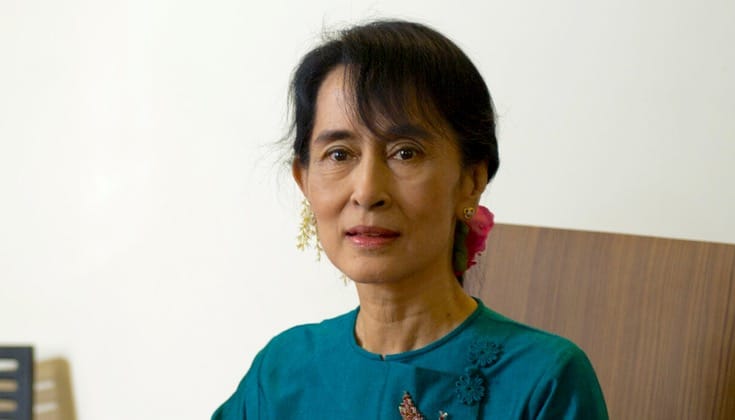A new military campaign against Myanmar’s persecuted Muslim minority raises questions about leader Aung San Suu Kyi’s commitment to human rights.

Aung San Suu Kyi. Photo by U.S. Department of State.
The New York Times reported this week that, despite high hopes for peace and reconciliation after Aung San Suu Kyi’s election victory last year, conditions have only degraded for Myanmar’s Muslim minority population, the Rohingya. The Burmese government launched a new military campaign this fall to drive Burmese Muslims out of their native country and into neighboring Bangladesh. The Times reports that the campaign has uprooted tens of thousands of already-impoverished civilians and razed villages, amounting to what U.S. Senator Benjamin L. Cardin — an early supporter of Suu Kyi — called “gross violations of human rights.” Other human rights watchdogs have reported allegations of security forces raping and slaughtering women and children. A representative for the United Nations high commissioner for refugees, said that the ultimate goal of the campaign is “the ethnic cleansing of the Muslim minority in Myanmar.”
In the Myanmar government, Suu Kyi shares power with the military, which is running the “anti-insurgency” campaign. Critics assert that Suu Kyi’s silence constitutes tacit approval. In September, after meeting with Suu Kyi, President Obama announced he would lift sanctions on Myanmar “In part because of the progress we’ve seen over the last several months.” He added that “It is the right thing to do in order to ensure the people of Burma see the rewards from a new way of doing business and a new government.”
The military campaign adds to the years of persecution of the Rohingya people at the hands of their government and countrymen. The United Nations has said the abuses may amount to crimes against humanity, and other human rights groups have alleged that they constitute genocide.
Myanmar’s Leader Faulted for Silence as Army Campaigns Against Rohingya
And though she has created an advisory commission headed by Kofi Annan, the former United Nations secretary general, to look into long-term reconciliation in Rakhine State, she has largely defended the military’s behavior. “Show me a country without human rights issues,” she said at an Oct. 12 news conference.
